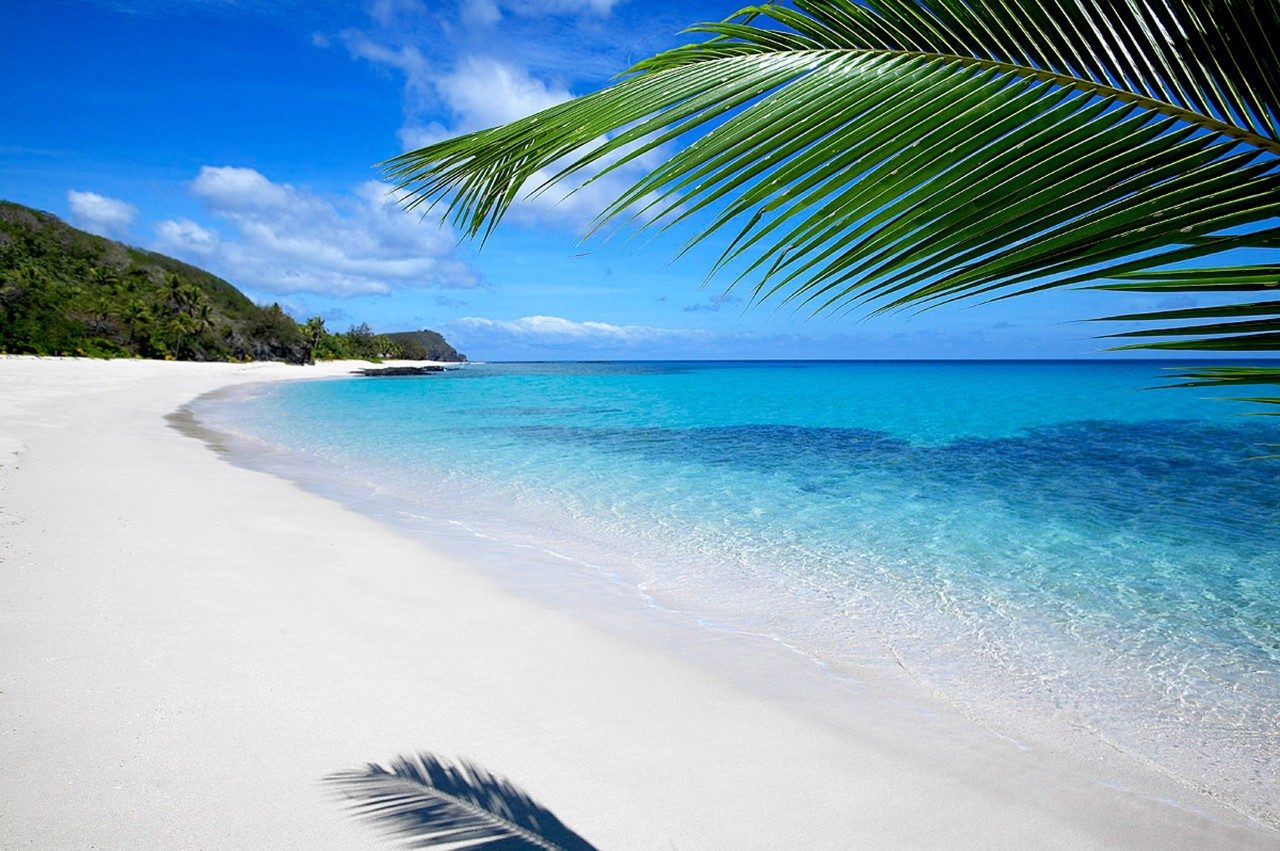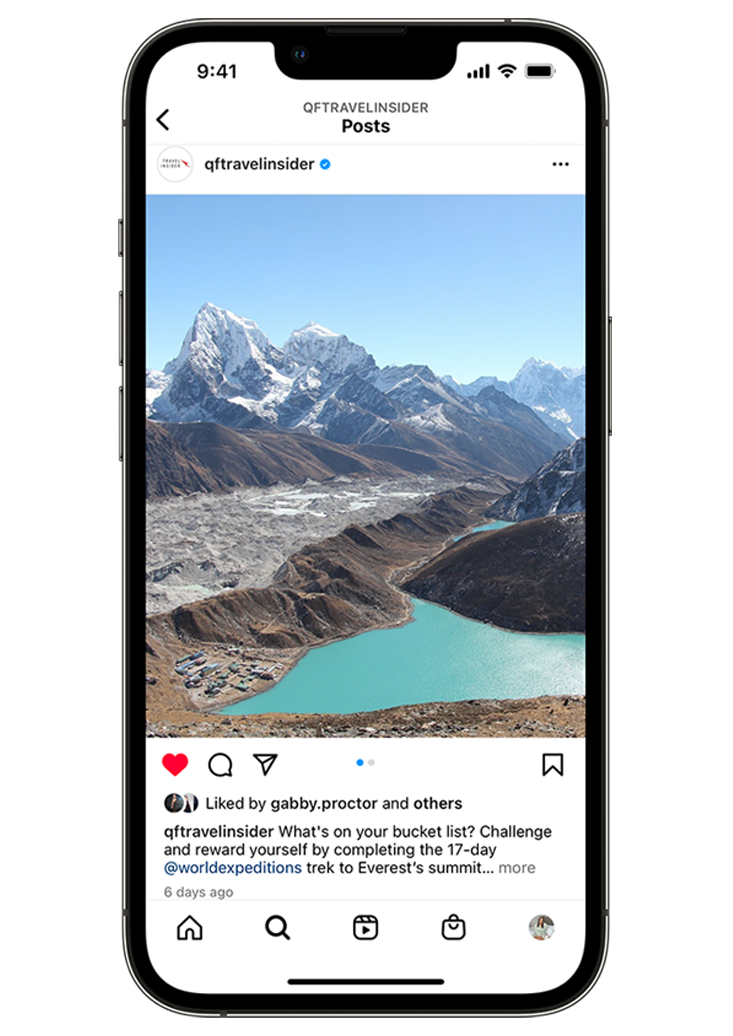Read Before You Leave – Fiji

Turquoise water, white sand, a blissfully slow pace and only a four-hour flight from Sydney. It’s no surprise Australians flock to Fiji. To help you plan a holiday to Fiji, we’ve pulled together a list of everything you need to know before you go, including which parts to see and the best times of year to visit.
Flight time to Fiji
Qantas flies directly from Brisbane, Adelaide, Melbourne and Sydney with flight times ranging from three to seven hours. Flights from Perth include a stop on the east coast.
Entering Fiji
Australian passport holders do not require a visa to travel to Fiji for tourism purposes. Visas for stays of less than four months are issued on arrival, as long as you can show proof of a return ticket and accommodation.
Flying into Nadi International Airport
Nadi International Airport is located about 10 kilometres outside the city of Nadi on the island of Viti Levu. It’s 192 kilometres north-west of Fiji’s capital, Suva. Connect to a domestic flight or a boat transfer to one of Fiji’s many islands or drive 20 minutes to the resorts of Denarau Island.
Health advice for Fiji
- Medical facilities in Fiji are not as comprehensive as in Australia, with regional hospitals generally providing a basic level of services. Make sure you purchase comprehensive travel insurance before your trip.
- Outbreaks of mosquito-borne illnesses, such as dengue fever and Zika virus, have been known to occur in Fiji. Apply insect repellent at all times and cover up with long clothing as much as possible in rural areas.
- Kava, a traditional alcoholic drink, can be dangerous. Smart Traveller recommends Australians avoid it, especially if taking medications including antidepressants.
- Stick to bottled water and avoid ice cubes to minimise the risk of water-borne illnesses.
Legalities
Possession of any quantity of an illegal drug could result in a prison sentence. It’s illegal to be inebriated at an airport or on a plane in Fiji. If in doubt, exercise caution.

Language in Fiji
English is widely spoken in Fiji, as are Fijian and Hindi.
Fiji transport tips
Nadi International Airport is on the island of Viti Levu. To get to the other main island, Vanua Levu, and elsewhere in Fiji, it’s possible to take a short domestic flight, a ferry or a resort boat transfer, depending on your destination. Metered taxis are plentiful on the main islands.
Money in Fiji
One Australian dollar is equivalent to $1.47 Fijian dollars at the time of writing – check a reliable currency conversion service for up-to-date exchange rates.
Even if you mostly plan on staying in a hammock at an all-inclusive resort (likely), make sure you have cash handy for trips to nearby villages. While there are ATMs (including Westpac and ANZ outlets) in Nadi and at some hotels, smaller towns rely on cash.
Etiquette in Fiji
"Fiji time" is real – the slow pace of life means things can sometimes take longer than they might in other places. Be patient and respectful when waiting for service in a restaurant or elsewhere, and never raise your voice – it might be interpreted as rude.
When visiting a village, dress modestly, take off your shoes and hat before entering a home and smile at everyone you pass – it's considered poor form not to acknowledge each other.
Weather in Fiji
The climate in Fiji is tropical and mild. Average temperatures range from about 25-31°C year round. The seasons are similar to Australia – it’s warmer from November through to April and cooler between May and October.
When to go to Fiji

Fiji’s wet season, November through April, coincides with its summer. Rainfall is significantly higher during this period, although downpours tend to be limited to just an hour or two in the afternoons. It’s the ideal time to take in the lush landscape (when you can drag yourself away from the pool, that is) – tropical flowers are in bloom and Fiji’s waterfalls are at their most epic.
October and November brings the Rising of the Balolo – and your chance to try a local delicacy – when edible sea worms known as "the caviar of the Pacific" emerge from coral reefs. Taste traditional Indo-Fijian dishes during Holi in March, when Hindus douse each other in brightly hued powders to celebrate the annual festival of colours.
Travellers looking for as much sunshine as possible should visit during the dry season between May and October, although the beaches are more crowded and prices are higher in response.
National Fiji Day, the anniversary of the country’s independence from British colonial rule, is a public holiday every 10 October. Also falling in October, the annual Hindu celebration of Diwali is marked by fireworks, light displays and delectable sweets.
Safety in Fiji
Fiji is generally a safe place to travel. However, visitors to Fiji may fall victim to petty crimes such as theft or ATM skimming. Avoid walking alone at night in urban areas, particularly downtown Suva, lock your car if you have one and keep expensive valuables out of sight.
Dress code in Fiji
Fiji is a tropical holiday destination, so feel free to dress in clothes you’d typically wear to the beach. But when visiting a traditional village, dress more conservatively (see etiquette above).
Tap water in Fiji
The water that comes out of the tap in Fiji is not the same as that famous bottled water. It’s generally safe to drink tap water at major hotels and in popular tourist areas like Nadi and Suva, but some visitors do complain about the taste. Outside of these centres, tap water may not be safe to drink.
Insurance policy
Smart Traveller recommends all visitors to Fiji take out comprehensive travel insurance to cover overseas medical costs, including evacuation.
Where to stay in Fiji
There are countless resorts and hotels to choose from in Fiji. The beaches near Nadi, mainly Wailoaloa and Denarau Island, are the most convenient locations for international travellers, just 20 minutes from the airport.
The Mamanuca Islands and Yasawa Islands are just off the western coast and can be easily reached by boat, seaplane or helicopter – you’ll be at your hotel within a few hours of touching down at Nadi International Airport.
The Coral Coast, on the southern end of Viti Levu, is another popular spot for tourists. It’s best to organise a transfer for the one-hour drive from the airport.
Those who want to get off the beaten path should visit Vanua Levu, Fiji’s second-largest island. It’s less tourism-oriented but has a good range of accommodation options.
Where to find a secluded beach
Savusavu: Located on the Coral Coast, Savusavu’s clear waters are filled with native sea life, including parrotfish, clownfish and giant clams, making it a top pick for snorkelling and scuba adventures.
Horseshoe Bay: The idyllic shores of Matangi Island, including Horseshoe Bay, are only accessible if you're on a yacht or staying at the private resort. Guests can take lunch in the hotel's specially designated picnic bure that rests on the shore.
Nalova Bay: Head to Nalova Bay on Nacula Island for turquoise water and white-sand beaches. The beach is fed by a lagoon that’s home to a range of coral and sea life.
Honeymoon Beach: Hidden in the private paradise of Turtle Island Resort, this is the spot to go for total seclusion. The resort is only open to 14 couples – with 12 beaches on the island, privacy is all but guaranteed.
Phone calls and mobile data
To avoid hefty international fees, disable data roaming before you land and don’t answer incoming calls. You can buy an international SIM card before leaving Australia or purchase a local SIM at the airport (this will only work if your phone isn’t locked to your Australian carrier). Or don’t – real life can wait until you get home.
Calling Australia from Fiji
To call Australia, dial +61 followed by the phone number – including the area code minus the zero. So, to call a Sydney landline telephone, you would dial +61 2 then the phone number. To call a mobile phone, use the same country code and dial the mobile number minus the first zero.
Internet in Fiji

If you have an Australian phone or local SIM, you’ll be able to access fast internet in populated areas, although coverage can be patchy in rural parts of Fiji. Wi-Fi is available at most hotels, many restaurants and other public places.
Gadgets and electronics in Fiji
In Fiji the voltage is 240V, compared to Australia’s 230V, and the frequency is 50Hz, the same as Australia, so most devices will work without issue. The electrical wall socket is the same shape as in Australia, so you don’t need an adaptor.
Handy apps and websites
- The Australian High Commission Fiji for emergencies.
- Tourism Fiji for researching destinations, hotels, activities, tours and more.
- Smart Traveller for up-to-date safety information.



